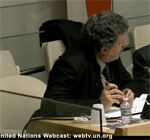Published on Wed, 2013-12-18 14:19
Revolutionary years seem to happen every half-century. In 1848 fifty revolutions in Europe and Latin America put a definitive end to the monarchy in France, absolutism in Denmark and the feudal serfdom in Austria and Hungary. In 1917 the two Russian revolutions started to put in practice the ideas summarized by Karl Marx and Friedrich Engels in a famous Manifesto, published precisely in 1848. In 1968 the specter of revolution toured the world again with rebellions against the established order in Paris, Prague, Mexico and many other cities and campuses. Was 2013 one of these years that history will remember as turning points? Statistics say that this is indeed the case. In a study titled "World Protests 2006-2013" Isabel Ortiz from Columbia University and Sara Burke, from the Friedrich Ebert Stiftung in New York, record and analyze strikes, demonstrations, rallies, riots, road blockages, occupations and other protest actions in almost ninety countries worldwide*. |
Published on Sat, 2013-12-14 23:00
In the last month or so, the Philippines has received overwhelming sympathy and support from the rest of the world. These are through kind words, prayers and donations meant for the survivors of super typhoon Yolanda. The numbers are online, the Budget Department says. Anybody can easily go to www.faith.gov.ph—the Foreign Aid Transparency Hub. Aggregate amounts are posted on the right side of the site, broken down into cash and non-cash donations. |
Published on Thu, 2013-12-12 23:55
The event “Realizing a vision for transformative development” was held in commemoration of the twenty-fifth anniversary of the United Nations Declaration on the Right to Development. Roberto Bissio, Social Watch Coordinator, who participated in the event, highlighted that removing the obstacles for development cooperation is essential. |
Published on Thu, 2013-12-12 05:53
The roles and responsibilities of unions in Canada have come under renewed scrutiny. According to CCPA, Social Watch member in Canada, provincial and federal government hostility towards organized resistance to current policies is intensifying through heated rhetoric and legislative trial balloons. Much of this is facilitated by the current economic insecurity which reinforces individualistic attitudes and often results in resentment directed at those who have it less bad; a general lack of awareness of how much, exactly, society owes to the victories that labour unions have won for all workers and their families—not to mention a lack of understanding of the rules by which unions operate; and those in positions of power growing evermore eager to use the tools at their disposal (corporate or legislative) to challenge the rights of unions to freely engage in the collective bargaining process to improve the lot of the workers they represent. |
Published on Wed, 2013-12-11 23:12
In a report to the UN General Assembly, a UN rights expert has emphasised that poverty is closely associated with racism and contributes to the persistence of racist attitudes and practices which in turn generate more poverty. Racial or ethnic minorities are disproportionately affected by poverty; and the lack of education, adequate housing and health care transmits poverty from generation to generation, a United Nations rights expert has said. According to Ruteere, poverty does not result only from an unequal sharing of resources. 'Discrimination against groups and persons based on their ethnicity, race, religion or other characteristics or factors has been known to encourage exclusion and impoverish certain groups of the population who suffer from unequal access to basic needs and services.' |
SUSCRIBE TO OUR NEWSLETTER







